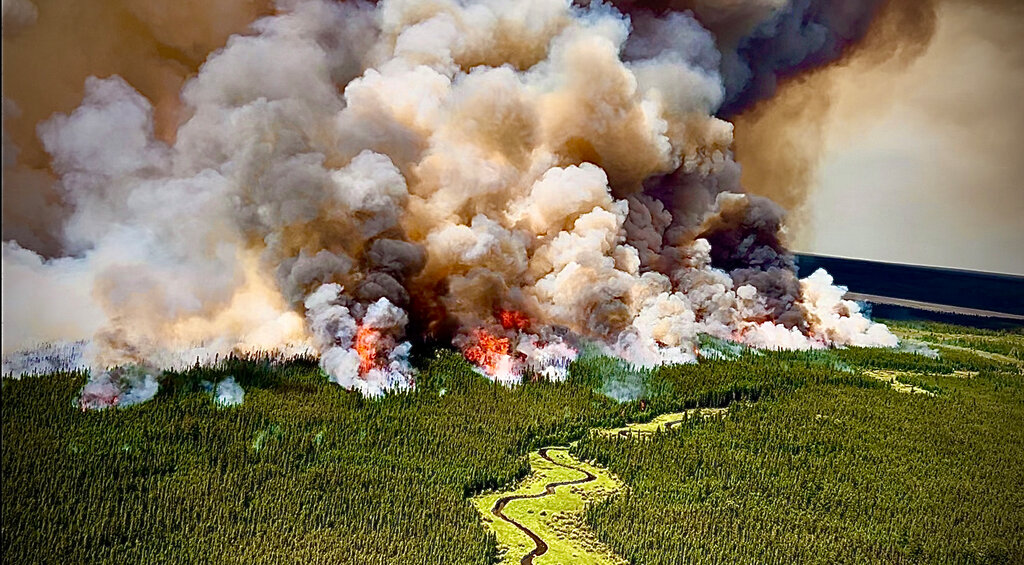By Vjosa Isai New York Times |
Elizabeth Mikkungwak thought the nearby garbage dump must be on fire. Acrid smoke clouded the skies over Baker Lake, a tiny Arctic hamlet and the only inland community in Nunavut, the largest in area of the three northern territories in Canada.
A safety alert issued by the authorities in the hamlet in May gave the real reason for the smoke: wildfires on the Prairies.
 |
| Wildfires in northern Saskatchewan. Saskatchewan Public Safety Agency via Agence France-Presse |
This year has been the second worst on record for wildfires in Canada, after 2023. Canadian officials warned earlier this week that heat and dry conditions would persist across the western provinces into September, priming the area for continued blazes.
[Read: What to Know About Canada’s Fire Forecast]
Wildfire smoke has in recent years become a more important factor in summertime outdoor recreation planning.
American politicians complained in July that Canada’s smoke spoiling their summers. Some outdoor tourism operators in the Atlantic provinces were dealt a blow this month when the premiers of Nova Scotia and New Brunswick took drastic steps to prevent accidental fires caused by humans, banning outdoor activities such as hiking and fishing in forested areas. There have been outdoor pool closings in Newfoundland, canceled professional football practices in Manitoba and shuttered youth soccer tournaments in Yukon.
Even the Arctic has not been immune to disruptions.
Letting in an outdoor breeze is a simple delight during the summer months in the Arctic, where windows are otherwise frozen shut for most of the year. But the smell of wildfire smoke was too pungent for Ms. Mikkungwak of Baker Lake.
“We couldn’t open our windows,” she told me.
The smoke is another reminder of the effects of climate change, acutely felt by those living in the parts of Canada that depend on colder temperatures to maintain their way of life.
Wildfire smoke is, historically, extremely rare in the Arctic. But it has been a more common sight this year because of the combination of powerful winds, atmospheric conditions that have kept the smoke at ground level and the geographic proximity of wildfires across northern Saskatchewan and Manitoba.
For the first time in its history, Baker Lake experienced wildfire smoke cover for three years in a row, from 2023 through this year, said Crawford Luke, a meteorologist in Winnipeg who works at Environment Canada, a federal department.
Iqaluit, Nunavut’s capital, which is on Baffin Island, just north of Quebec, had a record 19 hours of wildfire smoke cover this year. The last time the city had endured any wildfire smoke was in 1999, for one hour, Mr. Luke said.
Rankin Inlet, another larger community, had 71 hours of smoke cover this year, the second-most observed on record since 2023.
[Map: Tracking Heat Across Canada]
The presence of smoke in northern communities is a growing cause for concern, said Susan Natali, an Arctic ecologist at the Woodwell Climate Research Center in Falmouth, Mass. Researchers are working on installing low-cost sensors in communities that can monitor smoke as it becomes more prevalent, she said during a media briefing last month.



